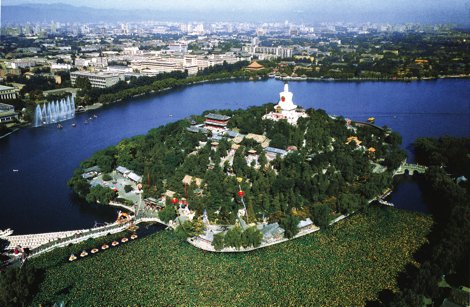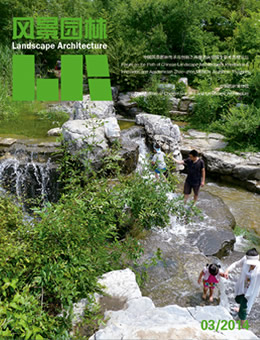王鹏 赵鸣*
WANG Peng ZHAO Ming
摘要:当下中国处于快速城市化发展阶段,人口众多、资源相对匮乏,引发严重的资源环境问题和生态问题,威胁着人类的健康和生存。中国古典园林蕴涵有丰富复杂的生态文明理念和生态化发展思想,通过查阅古籍资料和对现存古典园林的实地调研,依据生态学原理对中国古典园林在规划选址、设计营建、运营审美中的生态思想进行辨识和研究,一方面可以扩充园林学的研究内容,有利于古典园林的保护和利用,另一方面对当下人居环境和生态文明建设具有理论意义和现实意义。
关键词:古典园林;生态思想;规划选址;设计营建;运营审美;人居环境
基金项目:北京市科技计划课题资助项目:中国园林博物馆展陈系统和相关技术的研究应用 (No.Z121100000312043)
Abstract: China is now in the stage of rapid urbanization. It’s large population and relatively scarce resources have caused serious resources and environment problems and ecological problems, threatening human’s health and survival. Chinese classical gardens contain rich complex concepts of ecological civilization and ecological development ideas. Through looking up the information in ancient books and carrying out field investigation of existing classical gardens, and according to the ecology principle, carding and researching ecological culture of Chinese classical gardens, such as site selection, design and construction, aesthetic appreciation, it is beneficial for the expansion of the research content of the landscape architecture which is advantageous to the protection and utilization of classical gardens, and it is theoretically and practically significant for the current human settlement and ecological civilization construction.
Key words: Classical Garden; Ecological View; Site Selection; Design and Construction; Aesthetic Appreciation; Human Settlement
Foundation item: Project (No.Z121100000312043) supported by Beijing Science and Technology Plan Project: the Museum of Chinese Gardens and Landscape Architecture Exhibition System and Related Technology Research and Application
随着人类征服自然能力的不断增强,生态环境问题已经得到了世界范围的关注和认可,并且已经上升到国家意识层面。2007年党的十七大提出建设“生态文明”;2008年党的十八大明确了“生态文明”的定义,并将“生态文明”建设放在突出地位,提出“要实现中华民族的永续发展”。
周维权先生按照隶属关系将中国古典园林分为皇家园林、私家园林、寺观园林3大主体和衙署园林、祠堂园林、书院园林、会馆园林、公共园林等非主体,而这些不同类型的园林按照园林基址和开发方式的不同又可以简单归纳为人工山水园和自然山水园两大类型[1]。从这点可以看出,无论何种类型的中国古典园林都与“山水”有着密不可分的关系,“山水”按照中国传统来讲即自然、生态,“山水”除了是一种物质认同之外,同时也是一种情怀,带有很深的文化内涵在里面。所以研究中国古典园林就不能避开自然、生态的话题。
目前,对古典园林生态方面的研究还比较缺乏,相关领域和学术界的研究主要集中在建筑、哲学、美学等意识形态领域,如王其亨《风水理论研究》、雷毅《生态伦理学》、曾繁仁《建设后现代语境下的中国生态审美智慧》等。所以,结合营建实践深入发掘古典园林中生态思想的整体研究已是必然趋势,对当下人居环境和新型城镇化建设具有现实意义。
1 规划选址
明·顾吾序所著《八宅明镜》云:“宅以形势为骨体,以泉水为血脉,以土地为皮肉,以草木为毛发。”《汉书·晁错传》中说:“相其阴阳之和,尝其水泉之味,审其土地之宜,观其草木之饶,然后营邑立城,制里剖宅,阡陌之界。”中国古典园林在相地选址时会综合考虑水、植被、土壤、日照、方位等多方面因素。明代造园家计成认为造园选址“山林地最胜”,文震亨认为“居山水间者为上”,这都说明古人造园选址的第一要务是顺应自然的选择,选择自然环境良好之处,用现代生态学的观点看就是山水资源良好的地方,有足够的土地资源和环境承载力,能够保证人居环境的长治久安。
(未完待续)

 《风景园林》2014第3期导读
《风景园林》2014第3期导读
Leave a Reply